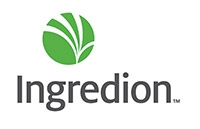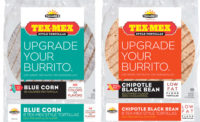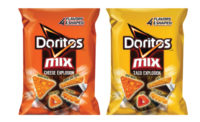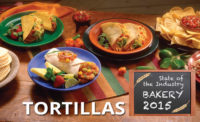For years, U.S. sales of tortillas and tortilla chips have steadily increased. Americans’ love affair with Mexican food continues, both when dining out and eating in. Health-conscious consumers replace sandwich breads with wraps (aka, tortillas), while people with gluten sensitivity enjoy the availability of another gluten-free meal and snack options in corn tortillas. And a host of other trends are sure to keep consumers buying tortillas and tortilla chips.
Evolving appetites
“Tortilla manufactures have remained at the forefront by introducing innovative variations of their already popular products,” says Dave Tessier, marketing research analyst, Wire Belt Company of America, Londonderry, NH. “Whole grain, multi-grain, blue corn and lower carb have made appearances on the shelves. The versatility of tortillas, combined with the variety of sizes, has made them the go-to meal foundation for many different cuisines.
“As snacking continues to be a growth category in food consumption, tortilla chips keep gaining ground and continue to peak the consumer’s interest during ever-changing trends,” Tessier continues. “Tortilla chips are by far the most quintessential dip chip, lending itself well to the growing ‘better-for-you’ chip dip segment. To coincide with this growth, we have seen tortilla manufactures continue to roll out ‘dip-friendly’ formats, including the rolled chip, scoops and rounds.”

Paul Bright, innovation manager, AB Mauri North America, St. Louis, says: “We are seeing the tortilla market continuing to grow and evolve. For today’s ‘on-the-go’ consumers, tortillas have become a perfect portable solution. Millennial consumers are continuing to look for an authentic and homemade option.”
Growing consumer demand for shorter and easier-to-understand product labels and healthy-for-you products are also influencing the ingredients the company’s customers are requesting. “Our innovation team continues to collaborate with our customers to find solutions that meet the market demands of today and tomorrow,” says Bright.
Improvements through ingredients
AB Mauri offers tortilla manufacturers both technical ingredient solutions and technical expertise to help them produce a wide variety of tortilla styles—from home-style, translucent tortillas with a shorter shelf life, to thicker, more-opaque tortillas with a longer shelf life. Its Supremo Tortilla Solutions line features specialty ingredients and blends for both flour and corn tortilla products. The blends allow customers to use the latest ingredient technologies to “dial up or dial down” their specific requirements for mold inhibition, eating quality and tortilla styles, Bright says.
AB Mauri offers numerous other corn and flour tortilla ingredient solutions under its Supremo and AB Mauri brands, including traditional mold inhibitors, cleaner-label mold inhibitors and shelf-life extension ingredients for corn tortillas, as well as baking powders, mold inhibitors, shelf-life-extension ingredients, blends, mix-time reducers and process improvers—chemical and clean-label—for flour tortillas.
“We are seeing more interest in non-GMO products, as well as requests for ingredients that are non-synthetic,” says Nita Livvix, director of R&D, Clabber Girl Corp, Terre Haute, IN. Consumer demand for all types of baked goods and snacks products made with non-GMO and natural ingredients continues to be strong.
Last year, Clabber Girl introduced Phos-Free baking powder as a solution for manufacturers that want to remove certain ingredients from their products in order to have a clean-label ingredient statement, says Livvix, adding that Phos-Free has the added benefit of reducing sodium, as well as the cost of leavening. “Half the amount is used, as compared to typical leavening products, because it contains more functional ingredients and very little filler,” she explains. “This product is attractive to tortilla manufacturers who buy leavening components, instead of baking powder, because nearly all of the ingredients are active and balanced, providing a one-step approach to leavening.”
Livvix adds that Clabber Girl also has some products in development that contain nonsynthetic acid blends that provide similar solubility rates to typical (synthetic) acids. “We believe this interest is driven by those seeking ‘clean-label’ ingredient statements,” she notes.
“There are always going to be new fads and trends in the marketplace,” says Abby Ceule, director, market management breads, Corbion Caravan, Lenexa, KS. “Butone thing’s for sure: No matter what’s happening, consumers aren’t going to repeatedly purchase products if they don’t taste good or meet their quality standards.”
Corbion Caravan offers a variety of mixes, bases and functional ingredients that, Cuele says, provide customers with a great foundation for making high-quality tortillas, panini or flatbread. “When tortilla manufacturers come to Corbion for product solutions, the majority of the time they are looking for ingredient technology that can help them overcome three common tortilla issues—freshness, flexibility and sticking problems,” she explains. “The importance of freshness, in terms of shelf life, is a given for manufacturers. They want to make sure their tortillas and wraps stay fresh and tasty from production to consumption. If consumers are eating their products and think they are too stale or not soft enough, then there’s less of a chance for a repeat purchase.
“The anti-stick technology helps ensure that the bottom tortilla will be just as usable as the very top tortilla in the stack,” she continues. “If tortillas stick together too much, you can’t use them, and it results in waste for our customers and consumers. Flexibility is important to tortilla manufacturers, because they need to ensure that tortillas can roll without tearing. If tortillas are tearing too much, it also creates product waste for the consumer.”

Troy Boutte, group manager, bakery/fats and oils, North America, DuPont Nutrition & Health, New Century, KS, suggests a broad range of synergistic ingredients, including enzymes, emulsifiers, hydrocolloids, antimicrobials, lecithin, fiber and protein, to help tortilla manufacturers deliver what their customers want.
Boutte notes that the GRINDSTED POWERFlex Blendshelp offer manufacturers tortilla flexibility, reduced stickiness and stay-fresh quality, as well as healthier formulations and production efficiency—all in an easy-to-use solution. Other emulsifier-based solutions also prevent sticking when tortillas stacked, while also allowing the tortillas to be separated without tearing or splitting.
DuPont is now working with customers to address the tortilla industry’s next challenge: removing partially hydrogenated oils (PHOs) from products before the FDA’s deadline goes into effect in two years. Boutte says the company is working with customers to replace monoglycerides with non-PHO alternatives in tortilla formulas.
From flours to flavors
“Part of our growth is that the corn tortilla market—and snack segment overall—continues to grow, driven by increasing appreciation for not just chips and tortillas, but also for taco shells, tostadas and chalupas, all of which are made with corn masa,” says Brian Armstrong, senior director of innovation and R&D, Bunge North America, St. Louis. “Within this growing market, we see value-added ingredients really dominating consumers’ attention—gluten-free and ancient grains, non-GMO, organic and, of course, clean-label. Consumers are also very savvy about balancing their diets with healthy fats, so the demand for zero-trans-fat and low-saturated-fat is both a regulatory imperative and a market trend. Finally, consumers value products that taste great and last on the shelf and in the pantry.”
To help its tortilla customers create products that meet all these consumer demands, Bunge offers both corn masa flours and a wide variety of shortenings.
The flours line features white, yellow and blended gluten-free corn masas for chips and tortillas. Corn masa flours with gums to help with machinability, or to achieve a desired softness and texture, are also available. “We also have the ability to customize blends,” says Armstrong. “Brands positioned around health or artisan appeal, for example, may want to see more of the grains visible in a corn tortilla or chip.”
The company recently developed a Silos De Oro shortening with phytosterols that, according to Armstrong, increases the rollability of tortillas and delivers 18 percent longer shelf life than a traditional shortening. “With traditional shortenings, a tortilla is more likely to crack or tear when folded as it approaches the end of its shelf life,” he explains. “Phytosterols delay this retrogradation, so the tortilla retains its structure, moistness and quality. Our Silos de Oro shortening also has less saturated fat than traditional shortenings and has no trans fat or PHOs.
“Many manufacturers continue to be challenged by a demand for healthier ingredients that still provide the functionality of traditional ingredients,” Armstrong continues. “In the past, PHOs provided excellent oxidative stability, but today’s labeling laws restrict their use, so Bunge has shortenings and high-oleic and expeller-pressed oils that function without PHOs.”
While a host of factors impact a consumer’s decision to repurchase a particular brand of tortillas, perhaps the most obvious is taste. As with all foods, consumers want tortillas that taste good to them, and they want to experience new flavors.
According to the R&D team at Land O’Lakes Ingredients, Arden Hills, MN, there is an increased need in the tortilla chip category for new flavors to appeal to the rapidly evolving consumer palate. The key flavor trends that the company has been monitoring involve bold, spicy and ethnic flavors. And adding dairy to bold and ethnic flavors can create an appealing flavor fusion, because it helps bridge the gap between flavors they loved when growing up, and the more-adventuresome flavors entering today’s culture.
Land O’Lakes Ingredients offers tortilla chip manufacturers spray-dried dairy powders and dry-blended seasonings to add the flavor of real cheese, butter, cream, sour cream and more to tortilla chip applications. To meet the rising demand for cleaner labels, the company offers dairy-based products that have no PHOs, artificial flavors or FD&C colors.
The new 3-Pepper CheddarChroma from Land O’Lakes Ingredients is a cheese powder seasoning that delivers a blast of heat with flavors of jalapeño pepper, aged cayenne, chili pepper and other spices blended with sour cream. It, too, contains no FD&C colors, PHOs or artificial flavoring to help tortilla chip manufacturers meet the demand for cleaner labels.
Corbion Caravan offers flavor-infused dry blends that, Ceule says, can help tortilla manufacturers create products that appeal to today’s adventurous consumers. The company’s Meister line, for instance, comprises easy-to-use dry blends of herbs, spices, vegetables and specially milled grains that can be incorporated on top of current formulations to create fresh, enticing flavors.
To the end of the line
Tortilla and tortilla chip manufacturers know that creating the perfect on-trend product is about more than just selecting and combining ingredients. What happens to the dough as it wends its way from the mixer to a bagger is equally critical.
“As healthy eating and dietary restrictions from food allergies become more prevalent, consumers are looking for additional options with alternative ingredients and additional flavors in the tortilla category,” says Tim Romero, product sales manager, tortillas, Taconic, Petersburgh, NY. “Since these types of ingredients are often more difficult to process in terms of dough stickiness, high-performance nonstick belts become a more critical factor in the process.”
Romero explains that some new products that incorporate grains and other ingredients may be more abrasive and difficult to process than standard ingredients, causing an average conveyor belt to wear more quickly. Taconic’s food-processing belts, he says, are designed to be more abrasion-resistant and offer better durability, as well as resistance to temperature and grease penetration.

Tortilla manufacturers typically purchase the company’s nonstick press belts, specifically the A1139, for pressing flour tortillas, says Romero. The A1139 is made from woven fiberglass and has a pigmented polytetrafluoroethylene (PTFE) coating. “By investing in the right press belts, tortilla manufacturers can enjoy the longer operating life of a durable belt while lowering the costs associated with adding large consumables to the solid-waste stream,” he adds.
Wire Belt Company of America, Londonderry, NH, offers many stainless steel conveyor belts well-suited for tortilla and tortilla chip products. “Our open-mesh stainless steel conveyor belts in the Flat-Flex line of products are often utilized on tortilla coolers because of their positive drive and straight running design combined with superior airflow,” says David Tessier, marketing research analyst for the company.
Flat-Flex offers up to 86 percent open area, while maintaining product support. The open design provides for excellent moisture reduction and cooling, which tortilla producers require prior to packaging to help extend product shelf life and reduce product quality issues.
Wire Belt’s Compact-Grid product line is suitable for tortilla chip and snack producers that require enhanced product support down to 3/8 inch by 3/8 inch, while maintaining a 70 percent open area, says Tessier. “The tight mesh design of Compact-Grid enables tortilla chip manufactures to process or transfer smaller, delicate products while allowing for an easy-to-clean solution that contains no welds, is positively driven, lightweight and has excellent tracking.
Once their products reach the end of the production line, tortilla and tortilla chip manufacturers want them packaged as quickly as possible to ensure freshness and safety, and reduce product damage.
The FFS tortilla bagger from Formost Fuji Corp., Woodinville, WA, offers tortilla manufacturers two advantages over other tortilla baggers, says Dennis Gunnell, vice president of sales and marketing for the company. “We’re able to package tortillas faster than the competition because of the motion the bagger uses to pick them up and push them into the bag,” he explains. “We’re actually shaping the stack of tortillas to make it more rigid, which allows us to run them at a higher speed. We’re comfortable at 55–60 tortillas per minute.” The bagger can accommodate zippered or non-zippered polyethylene bags in all sizes.
The bagger’s second advantage is its quick and flexible changeover. “We can go from a 6- to 8- to 10-inch tortilla pretty quickly with minor modifications,” says Gunnell. “That’s a real strong selling point of the machine.”
Tortilla manufacturers that want high speed and sealed packages find that the Fuji-Formost Alpha VII horizontal form/fill/seal wrapper, which uses rollstock, meets their needs—typically for a lower price than bags. “We built in a flightless infeed—which other companies don’t build—that makes changeovers easy and quick,” says Gunnell. “A belted infeed carries the product right up to the film, which makes for a really smooth transfer.”
In addition to tortilla baggers and wrappers, Formost Fuji offers tortilla manufacturers fully automated lines. “We can help them automate, from the cooling line all the way through to counting, stacking, bagging or wrapping,” explains Gunnell. “As they grow into higher volumes, they want to get eliminate people wherever they can.”
Like other food processors, tortilla and tortilla chip manufacturers will continue to create products that meet ever-changing consumer demands, ranging from desires for healthier snacking to new, adventuresome tortilla flavors, all with the help of supply-chain partners poised to deliver.
Sprouting better-for-you tortilla chips
Sprouting grains and other ingredients for use in snack products, like tortilla chips, has continued to gain ground. The sprouting process improves the bioavailability of the nutrients in the ingredients, thereby taking the products into a clear better-for-you direction.
Jim Breen, founder and CEO, Live Better Brands, Minneapolis, already had a strong understanding of the benefits of sprouting beans, seeds and grains before he launched his Way Better Snacks brand in 2011, and built those ingredients into the core of his product lineup.
These were ingredients Breen saw as trending forward with consumers. “We were sprouting ingredients like chia, flax, daikon radish seeds and broccoli seeds—and now we do kale seeds—and it really worked,” says Breen regarding the growth of the Way Better Snacks brand over the last few years. “It was a combination of inspiration and looking at what consumers were already seeking and had accepted. We don’t include anything in our products that consumers are not that familiar with.”
The ingredients for Way Better Snacks products are sprouted by Live Better Sprouting Innovation, a wholly owned business unit of Live Better Brands. The sprouting business also offers sprouted ingredients to the industry at large.
“The snacks category has really terrific dynamics,” says Breen. “It’s a big category, and it’s an important category to retailers.” He notes that retailers today are looking for new—often better-for-you—products to drive sales growth, and consumers are likewise looking for something new and different.
Way Better Snacks makes 12 varieties of whole-grain corn tortilla chips and four flavors of sprouted-barley crackers, all made with sprouted ingredients like flax, chia, quinoa, broccoli, kale and radish seeds, as well as sprouted brown rice and black beans. The brand’s tortilla chip flavors include Nacho Cheese , Sweet Potato, Sweet Chili, Multi-Grain, Black Bean, Blue Corn, Spicy Sriracha, Ginger-Kissed Sweet Potato and No Salt Blue Corn.
—Douglas J. Peckenpaugh, Chief Editor





